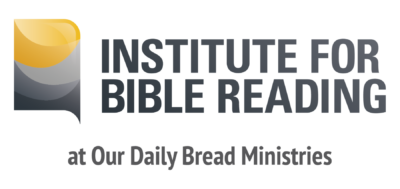None of the Bible Was Written to You…And That’s a Good Thing.
Every single bit of the Bible was written to people from another time and place.
Therefore, exactly 0% of the Bible was originally addressed directly to you or to me.
The Bible is not a guidebook that blandly tells us what to do, no questions asked. The Bible is not an instruction manual for looking up the right answers to all our questions. It’s not even “a love letter” from God, or if it is, it’s the strangest love letter ever written. (That is not to say, however, that it’s not a love story, which is something else entirely.)
The fact is that many of the shorthand descriptions we commonly hear about the Bible just don’t accurately capture what the Bible is and how it actually works. And that’s too bad, because the way the Bible was built to help us remains undiscovered. The common descriptions often lead to confusion, distortion, and misreading, while the real benefits of these sacred writings remain undeciphered.
The key to finding the Bible’s purpose for us is first and foremost to be honest about the nature of the Bible itself. Grasping a handful of basic points will put us well on the way to a healthy and beneficial interaction with the Bible.
1. The Bible is Rooted in Ancient History and Culture
We begin with a full acknowledgment that the Bible is rooted in an ancient world. It is speaking directly to people in that world, not our world. Now it’s true that some things stay the same over the course of history, like the basics of the human condition. So the Bible will always be relevant in that sense. But it’s also true that a lot of things change, like the cultural frameworks that shape how people see their world and make sense of it.
The Bible is not trying to be modern (or postmodern). It’s simply trying to be what it is—an account of the beginning of God’s interactions with a family-turned-nation that is crucial to accomplishing his intentions for the whole world. So we must begin our Bible reading by doing all we can to understand what it is saying to those people first of all. What were the assumptions of Israel’s ancient world? How does the Bible both reflect and challenge those assumptions?
Another way of saying this is to affirm that while the Bible is certainly for us, it was not written to us. (We are definitely involved, but our part comes later, as we’ll see.)
2. The Bible is a Library
The next step is to realize that the Bible is not really a single book. It’s a collection of very different kinds of writing that were spoken, sung, written, and edited over a long period of time. A critical element of good Bible reading and interpretation is to ask: What kind of book is this? and What are the rules for understanding this kind of writing? The ancient Hebrews used lots of kinds of literature, and there are regular rules of engagement that go with each one. A failure to attend to them can easily lead to misreadings of lyrical poetry, wisdom literature, prophecy, apocalyptic, letters, and even historical accounts (which functioned with ancient standards of history writing, not modern ones).

3. The Bible Is a Story
But the Bible is not a random collection of ancient Hebrew writings. The Holy Scriptures are a library whose contents come together to tell a single, connected story. There are narrative threads that tie the books together, progressively revealing more and more of God’s slow and patient plan to reclaim his creation. That is, there is redemptive movement through the books over time. This movement is not always smooth and easy, effortlessly gliding toward God’s final intentions. Rather, the story moves in fits and starts, with huge setbacks and failures that lead to real questions about how God’s big plan is working.
One of the burning questions for first-century Jews was precisely this issue of God’s faithfulness to the covenant and the fate of his chosen people. For centuries the story had appeared to be stuck. Is this story even true? But the New Testament claim is that the utterly surprising story of Jesus reveals God’s remarkable work to save the story and rescue the world. The Bible itself claims the story has a beginning, a long meandering middle, and an ending that will embody God’s longtime intentions.
So the way to read the Bible is to feast on whole books, understood as the literature they are and speaking to the Bible’s first audience, while staying aware of the place the various books take within the developing narrative.
4. The Bible Is a Festooned Story
Sometimes it is objected that the “Bible as story” approach is overdone since not all the Bible’s books are narrative in form themselves. But this objection misunderstands how the books fit together. Of course it’s true that many contributions within the Bible are something other than narrative—there are song books, proverbs and longer wisdom reflections, apostolic letters, law codes, collections of prophetic oracles, etc. But the point remains that all of these other kinds of writing adorn the Bible’s narrative by adding depth and color, allowing us to see and feel more deeply what it was like to live within this story of God and his people.
The non-narrative books of the Bible offer crucial ways for us to enter more deeply into the story and understand it from the inside out, in greater detail and texture. These books open up what it was like for ancient Israelites or early Christian believers to live out God’s story in the real world. The “festoon” books allows the Bible to show and not merely tell what this great drama is all about.
How the Bible Actually Helps Us Today
So, putting it all together, the good news is that we don’t have to pretend that we’re supposed to read the Bible and simply do everything it says. God has never wanted us to be robots. Instead, God gave us the wonderful gift of the Bible so that we can see what he’s done throughout history and absorb the story deep in our bones. And he’s trusted us to faithfully carry the story forward today.
How do we do that well? First, we have to ask what any particular part of the Bible meant to its first audiences. We explore how it contributes to the ongoing story: What new thing is happening? or What’s going wrong here in terms of where God wants the story to go?
Then, once we’ve done our due diligence on what the Bible meant, we can proceed to what it means—for us, now. We do this by reflecting on that original meaning and looking for connections to our life now. What perennial human tendencies, weaknesses, temptations are addressed? What signs do we see of God’s ultimate redemptive intentions? What do we learn about how God works?
And finally, preeminently, we watch explicitly for how Messiah Jesus is at the center of the story. It is in his life and ministry that we see what the world looks like when God rules. Not everything that God will accomplish in the end was completed during Jesus’ life, but in him we do see most clearly who God is, what he wants, and what the central trajectory of the story is.
And it’s in that redemptive, restorative trajectory of new creation that we live. Our job is to read the Bible thoroughly and well so we know what God has done and what God is doing. Our work is to labor alongside God himself, making our own contribution to his kingdom coming on earth as it is in heaven. And the only way we can know and do such things with competence and clarity is by reading and living the Bible well.

 In fact, most of my life with the Bible has been constrained by that reference format, leading to the inevitable outcome of lots of study, mastering propositions and doctrine, sword drills around individual verses, ensuring a clear “world view” and so on. Per the definition of literacy, I would say I am actually pretty “literate” when it comes to the Bible. I developed a certain level of competence or knowledge about the Bible, including memorizing lots of verses. And I did it through diligent, personal quiet times.
In fact, most of my life with the Bible has been constrained by that reference format, leading to the inevitable outcome of lots of study, mastering propositions and doctrine, sword drills around individual verses, ensuring a clear “world view” and so on. Per the definition of literacy, I would say I am actually pretty “literate” when it comes to the Bible. I developed a certain level of competence or knowledge about the Bible, including memorizing lots of verses. And I did it through diligent, personal quiet times.